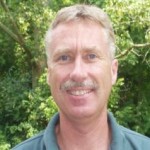
Lindsay Smith is Business Manager for
Ashburn Clinic in Dunedin, which recently won the Otago Business Excellence Award for Sustainability (sponsored by Otago Polytechnic).  This award recognised the Therapeutic Community philosophy which underpins the entire operation, playing a major role in achieving sustainable practices in every aspect of the Clinic.   Ashburn Clinic has been working with all stakeholders, including quite different relationships with suppliers: Ashburn doesn’t buy wood – it buys heat. We explore how we might expand the successful model demonstrated by Ashburn. Lindsay has a background in the electricity industry, his observations on that industry are quite shocking.
Shane’s number of the week: 70% is the decline of specialist farmland birds since 1975 in the UK (DEFRA).
Sam’s joined-up-thinking: In 1879, Henry George, a critic of Malthusian economics, argued that “it is a well provisioned ship this which we sail through space†:
If the bread and beef above the decks seem to grow scarce, we but open a hatch and there is a new supply, of which before we never dreamed. And very great command over the services of others comes to those who the as the hatches are opened are prepared to say. “This is mine!†(p179 in 2005 reprint).
The journey metaphor was given a challenging twist by Buckminster Fuller in the 1950’s and 1960’s earth in his conception of the earth as a spaceship with a limited set of resources that cannot be resupplied, save for energy from the Mothership Sun. A key element of his ‘operating manual’, is that the ship only consists of crew – there are no passengers (1965 in Vallero 2005. 367). Hence, different thinking is required if the problems facing the earth and its systems are to be addressed because “…we have been mis-using, abusing, and polluting this extraordinary chemical energy-interchanging system for successfully regenerating all life aboard our planetary spaceship.â€


